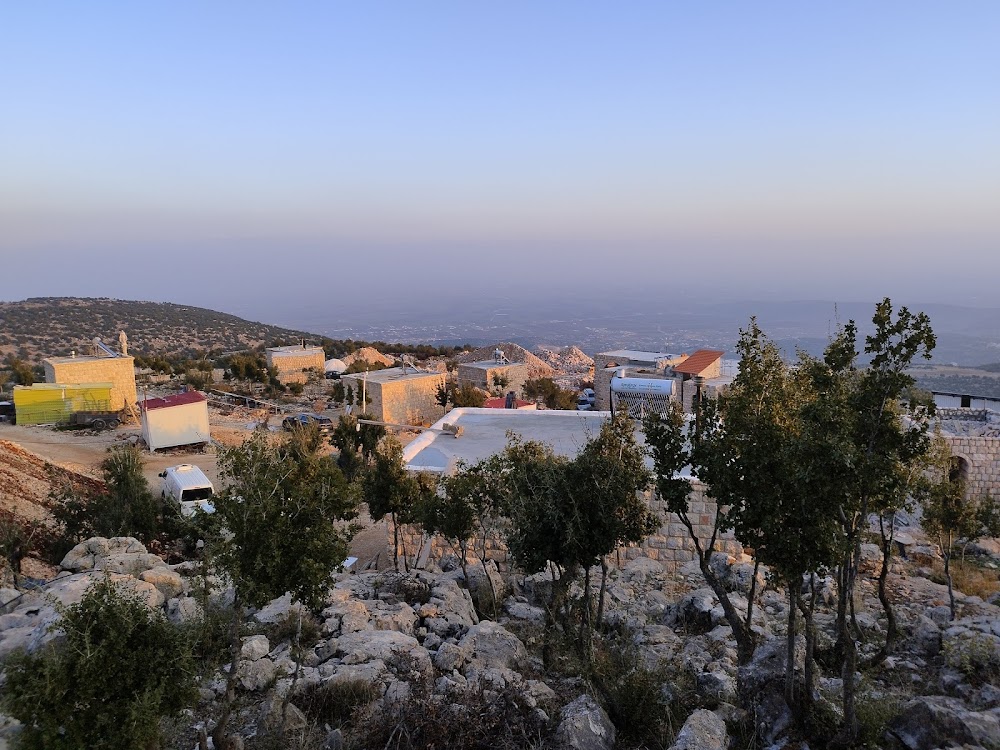Al-Masnaa Border Crossing (معبر المصنع الحدودي)
Overview
Al-Masnaa Border Crossing, situated in the picturesque Beqaa Valley of Lebanon, holds significant historical and cultural importance as a vital entry point connecting Lebanon with Syria. Formally known as the Al-Masnaa-Jdaidet Yabous Border Crossing on the Syrian side, it serves as a key gateway for trade, tourism, and cultural exchange between these neighboring nations. For foreign tourists, this crossing is more than a mere transit point; it is a place rich with historical and geopolitical significance, inviting exploration of the region's deep-rooted connections.
The **Beqaa Valley**, where Al-Masnaa is located, has been a crucial corridor for civilizations for millennia. Historically, this valley has hosted ancient trade routes linking Lebanon's coastal cities with the hinterlands of Syria and beyond. These routes played a pivotal role in the exchange of goods, ideas, and cultures in the ancient world, creating a vibrant tapestry of interactions that continue to resonate today.
The **Al-Masnaa border crossing** has witnessed numerous historical events, from moments of conflict to phases of cooperation. During the Lebanese Civil War (1975-1990) and the subsequent Syrian occupation, the crossing was heavily fortified and controlled, symbolizing the tumultuous relationship between Lebanon and Syria. However, in the post-civil war era, it has evolved into a more regulated and efficient transit point, reflecting the changing political dynamics and the resilience of the local population.
One of the most intriguing aspects of Al-Masnaa is its role in facilitating not only human travel but also the exchange of goods. The crossing is bustling with a variety of vehicles, ranging from passenger cars to large commercial trucks, highlighting its importance in regional commerce. The goods transported through Al-Masnaa encompass everything from the agricultural bounty of the fertile Beqaa Valley to various industrial and consumer products, underscoring the interdependence of the Lebanese and Syrian economies.
For tourists, passing through **Al-Masnaa** presents a unique opportunity to experience firsthand the dynamics of a border crossing in a region steeped in history. The surrounding area is a visual delight, with lush fields and rugged mountains shaping the landscape. This natural beauty, paired with the historical weight of the location, creates a thought-provoking backdrop for any journey.
Travelers often find the crossing to be a microcosm of the broader Middle Eastern experience, where ancient traditions intersect with contemporary challenges. It is common to see visitors and traders engaging in animated conversations, reflecting the vibrant cultural ethos that characterizes this part of the world. Despite the hustle and bustle, the crossing is equipped with facilities, including customs offices and inspection points, ensuring that the passage experience is organized and efficient.
Additionally, the **Beqaa Valley** is renowned for its rich agricultural heritage and celebrated wineries, particularly those in the town of Zahle. Tourists traversing Al-Masnaa should take the opportunity to explore these local attractions. The valley's vineyards produce some of Lebanon's finest wines, offering delightful wine tours and tastings that provide a charming diversion and a taste of local hospitality.
In summary, the **Al-Masnaa Border Crossing** is far more than just an entry point; it stands as a testament to the historical and cultural connectivity of the Levant region. This crossing symbolizes the enduring human spirit, capable of overcoming adversities and fostering bonds across borders. For the adventurous traveler, Al-Masnaa offers not only a passage into a new country but also an invitation to delve deeper into the rich narratives of Lebanon and Syria, discovering a region that is as resilient as it is beautiful.




